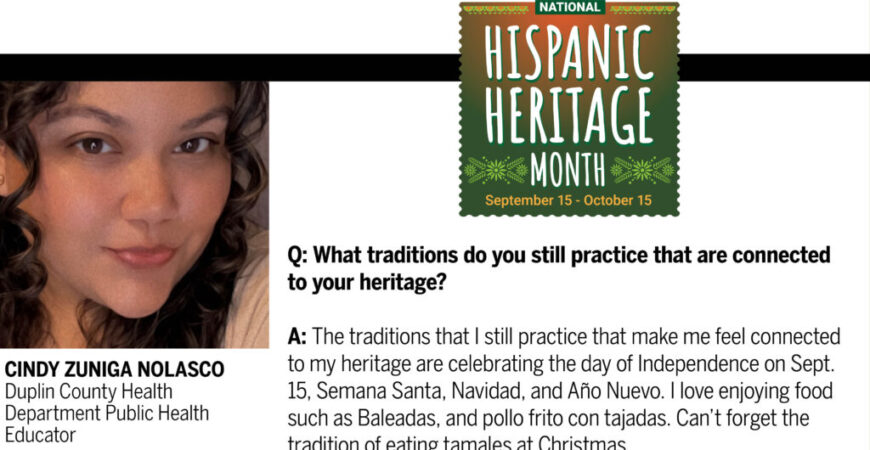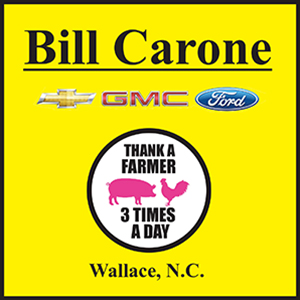Q&A with Cindy Zuniga Nolasco, Duplin County Health Department Public Health Educator
A month-long celebration that runs from Sept. 15 through Oct. 15 celebrates the positive impacts of Latinos and Hispanic Americans whose ancestors came from Central and South America, Mexico, Spain and the Caribbean.
National Hispanic Heritage Month coincides with national independence days in various Latin American countries and dates back to 1968. Originally a week-long celebration, it was expanded to a month in 1988 and passed into law by President Ronald Reagan.
Duplin Journal will be shining a light on Latinos — who make up 23.2% of the county’s population — whose service and dedication make a difference in our community.
This week, Duplin Journal invited Cindy Zuniga Nolasco, Duplin County Health Department public health educator, to join us and share a bit about her roots.
Cindy is 22 years old. She was born and raised in Duplin County and is the oldest child in a family of six.
Can you share a bit about your own cultural identity?
My cultural identity is being able to speak two languages, English and Spanish. Although I was born in the United States, I have family roots in Honduras. We love to have family gatherings with food and music.
What does National Hispanic Heritage Month mean to you personally?
National Hispanic Heritage Month means to me celebrating freedom. It means embracing our culture with our music, food, and natural drinks traditions. It is celebrating our beautiful Hispanic culture with pride.
What is your driving force?
My driving force is my family. My sisters, Keidy, Sophia, and Ally force me to be a better person because they look up to me. But most importantly my parents Argelia Nolasco and Fredin Zuniga. My parents came to the United States to provide me with a better future. I owe them for that because now I can do the things they dreamed of doing when they were younger.
What has your experience been like growing up within the Hispanic community?
My experience growing up within the Hispanic community has been impressive. I see a lot of the Hispanic children that I grew up with, that are breaking barriers that hinder our parents from doing things in their own country. Our community is growing and glowing. We are making our culture proud.
What has been the biggest change/challenge that you had to overcome as a Latino/a?
The biggest challenge I have had to overcome as a Latina first-generation student was having to learn how to navigate college on my own. I had to learn through it myself. My parents did not have that privilege, but I made it happen and I wasn’t going to let anything stop me from accomplishing my dreams and making them proud.
What is something you wish people would understand more about Latinos?
Something I wish people would understand about Latinos is that we are here to succeed for our families. If you go to their countries, you will understand the situations that happen there.
What traditions do you still practice that are connected to your heritage?
The traditions that I still practice that make me feel connected to my heritage are celebrating the day of Independence on Sept. 15, Semana Santa (Good Friday), Navidad (Christmas), and Año Nuevo (New Year). I love enjoying food such as Baleadas (homemade flour tortilla with beans, Central American cream, and cheese), and pollo frito con tajadas (fried banana plantains, cabbage, tomato sauce, shredded cheese, and fried chicken). Can’t forget the tradition of eating tamales at Christmas.
 Twitter
Twitter Facebook
Facebook Instagram
Instagram






